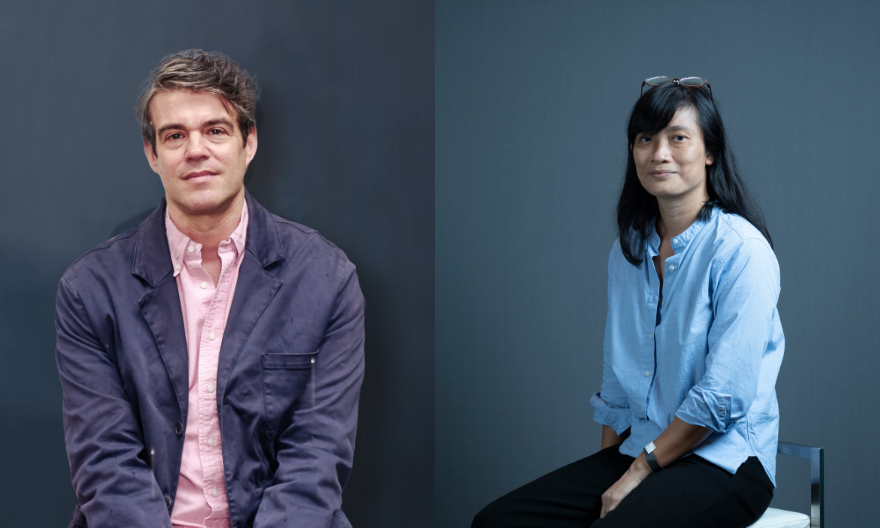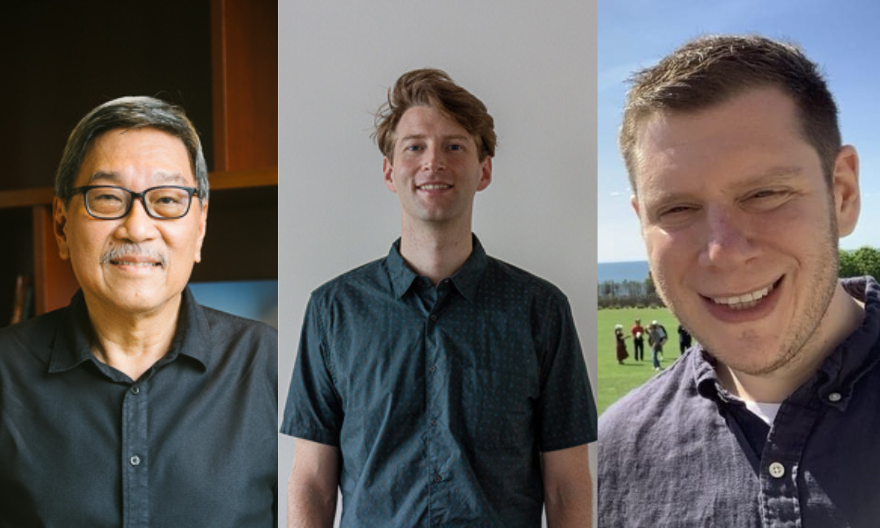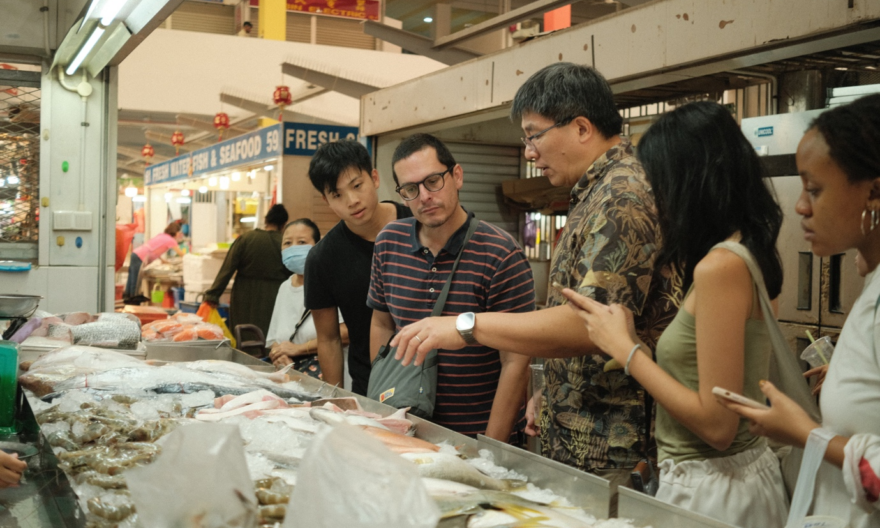Field Research course enables Yale-NUS students to discover more about nature
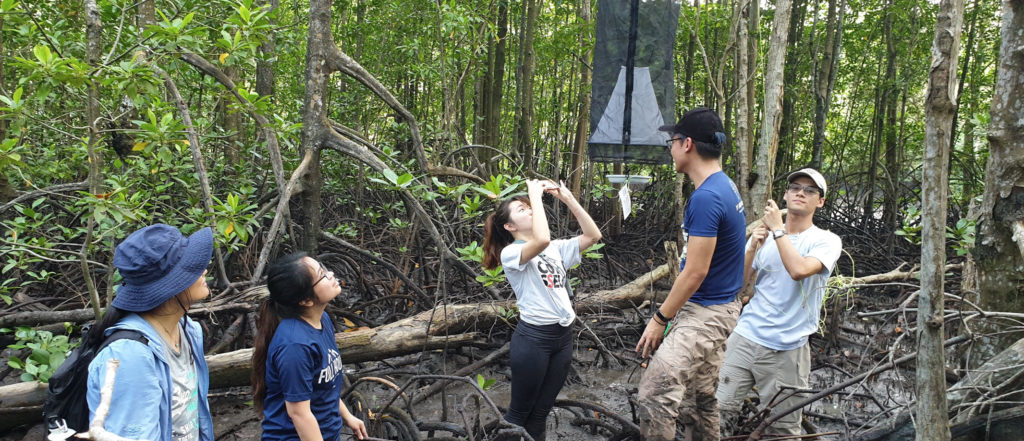 Setting up butterfly traps during the field trip to Pulau Ubin. Image provided by Asst Prof Michiel van Breugel.
Setting up butterfly traps during the field trip to Pulau Ubin. Image provided by Asst Prof Michiel van Breugel.
At Yale-NUS College, the curriculum offers a window of opportunity for both theoretical knowledge and field research, enabling students to gain a different perspective to their learning.
Field Research is one of the courses that takes students out of the classroom and promotes learning through hands-on experience or fieldwork. Through the course, Assistant Professors of Science (Environmental Studies) Eunice Tan and Michiel van Breugel created opportunities for students to conduct research in the natural environment, which helped students obtain a better understanding of field-based research in ecology and the environmental sciences.
This academic year, students taking the course studied insect biodiversity in different sites by using various methods including setting up traps to catch various species of insects and examine them. Thereafter, they applied basic statistical principles and analyses to compare trends based on the species gathered. Through their fieldwork, students discovered that there are more species of insects in the secondary forest in Pulau Ubin, compared to Kent Ridge Park. This finding is important because it raises questions about how parks may not be conserving as much biodiversity as forests.
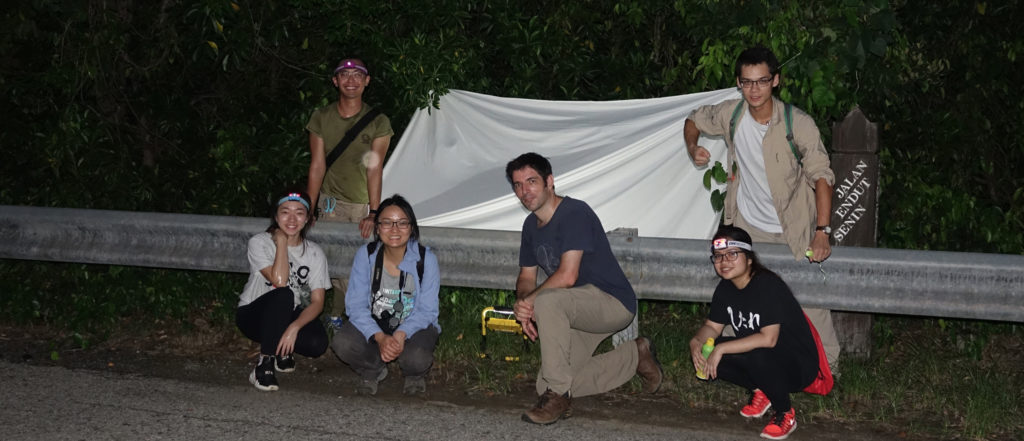 Setting up light traps in Pulau Ubin. Image provided by Asst Prof Michiel van Breugel.
Setting up light traps in Pulau Ubin. Image provided by Asst Prof Michiel van Breugel.
“It was different learning in the field, as students get to actually see live animals, and real animal specimens, compared to looking at their images,” said Asst Prof Tan.
For Noelle Phan (Class of 2022), the fieldwork in Pulau Ubin for their final class project was the most meaningful experience in the course. She enjoyed applying the research methods that they had learned throughout the course on actual situations.
Her favourite aspect of the course was that the professors gave the students a lot of freedom regarding their work – students had to set their own protocols for their research and solve the problems they faced themselves.
Noelle is currently exploring Environmental Studies as a major. Through learning to manage the data she collected in the Field Research course, she has also developed an interest in data science.
On the other hand, Haaken Bungum (Class of 2021) who is majoring in Life Sciences appreciates how the course adds diversity to the modules related to the Life Sciences major. “I feel that the Life Sciences major is currently geared more towards the molecular side of things. Having more options in biology is really nice and gives a broader picture of what the field actually contains,” he said.
Environmental Studies major Andreia Ko (Class of 2020) was Haaken’s research partner when the class went to Kent Ridge Park to measure the diameter of tree barks. Since it was the students’ first time out in the field, Andreia recalled how she and Haaken initially felt lost and confused.
“It was quite a hilarious sight – Haaken and Asst Prof van Bruegel wrapping their arms around these thick trees like tree-huggers in their efforts to measure them,” she recounted.
Witnessing the scene, she has gained a new perspective to studying nature. She said, “In trying to make sense of the natural world, we sometimes limit this larger-than-life entity to our senses and reduce the grandeur and mystery of this earth to data sheets and values”.
It wasn’t until they went to Pulau Ubin for their final week when Andreia found herself spending at least 14 hours sorting through insects and tiny flies visible only under the microscope. “I caught a glimpse of the heart behind scientists like my professors,” said Andreia.
The hands-on experience allowed her to start to appreciate “the beauty and intricacy of the insects” she observed. According to Andreia, “even the annoying red ants looked so cool when you see them up close”.
Andreia also shared how she was pushed out of her comfort zone on their second day when she had to spend the day working in the mangrove swamp and “feeding swarms of mosquitoes, stepping on thorns” and went back to cool down in the shower only to find out that the water supply had been cut off.
Undeterred by the experience, Andreia believes that this push was healthy and necessary for her. “This trip to Ubin was like a quick reality check for me, which helped me understand my place on this planet,” she said. “I have no idea what the future holds, but I am certain that this experience has contributed in changing and shaping my perspectives about science and the environment.”

